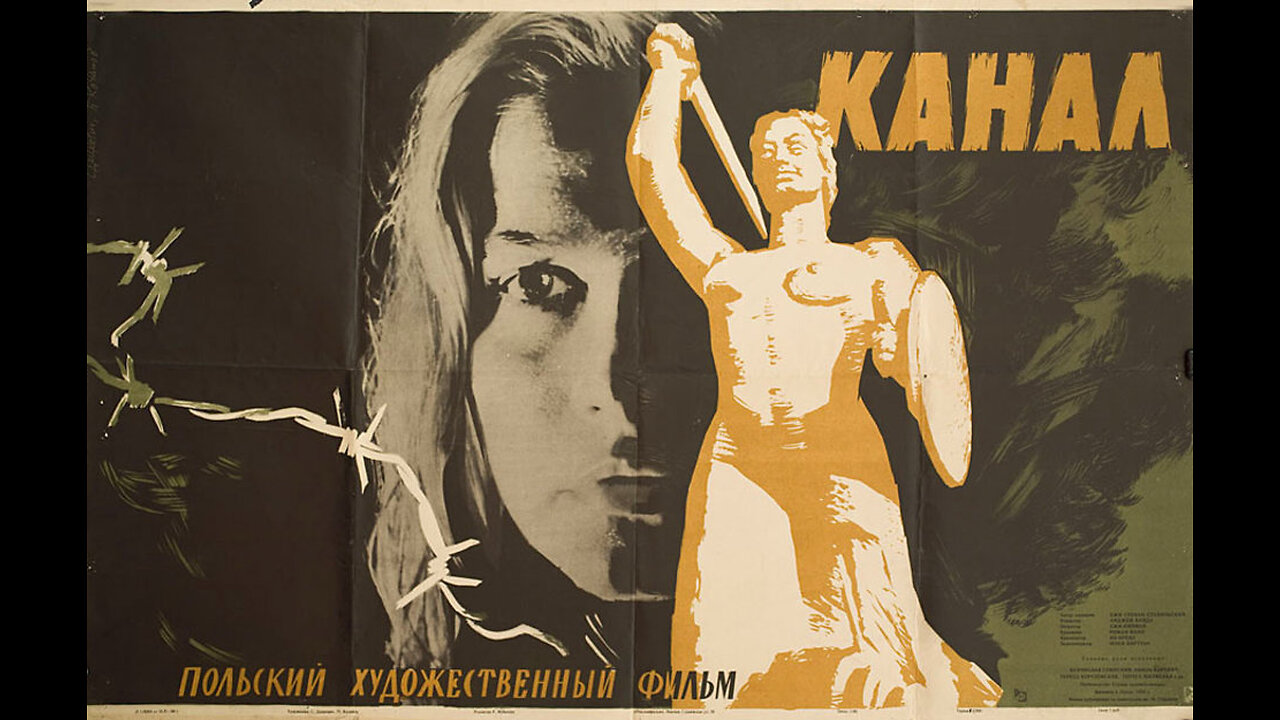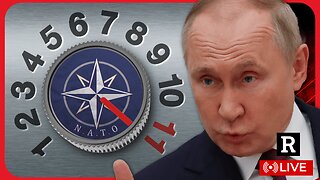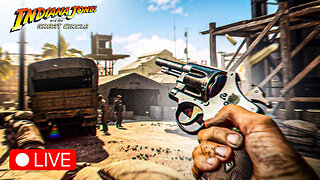Premium Only Content

KANAL (1956) in Polish with English subtitles
Kanał (Polish pronunciation: [ˈkanaw], Sewer) is a 1957 Polish film directed by Andrzej Wajda. It was the first film made about the 1944 Warsaw Uprising, telling the story of a company of Home Army resistance fighters escaping the Nazi onslaught through the city's sewers. The film is adapted from the story “They Loved Life” by Jerzy Stefan Stawinski. Kanał is the second film of Wajda's War Trilogy, preceded by A Generation and followed by Ashes and Diamonds.
The film was the winner of the Special Jury Award at the 1957 Cannes Film Festival.
PLOT
It is 25 September 1944, during the last days of the Warsaw Uprising. Lieutenant Zadra leads a unit of 43 soldiers and civilians to a new position amidst the ruins of the now isolated southern Mokotów district of Warsaw.
The composer Michał manages to telephone his wife and child in another part of the city that is being overrun by the Germans. After a few words, she tells him that the Germans are clearing the building and that they are coming for her. Then the line goes dead. The next morning, 23-year-old Officer Cadet Korab apologizes after walking into a room to find the second in command, Lieutenant Mądry, and messenger girl Halinka in bed together (Halinka later reveals that Mądry is her first lover). A German attack is stopped, but Korab is wounded while disabling a Goliath tracked mine.
Surrounded by the enemy, Zadra is ordered to retreat through the sewers to the city centre. Now down to 27 fit to travel, including Korab, they slog through the filth.
Daisy, their guide, asks Zadra to let her help Korab, claiming that the others can find their way easily enough. Zadra consents. However, the pair fall further and further behind. When they reach the designated exit at Wilcza Street, Korab is too weak to climb the upward sloping tunnel, so they rest for a while. He notices some graffiti on the opposite wall, but cannot quite make it out. Daisy tells him it says "I love Janek", when the name is actually Jacek, Korab's first name. She decides that they should head in the direction of the river, which is only a short distance away and drives him on, not letting him stop. Finally, they see sunlight. By this time, Korab is half blind and at the end of his strength. He cannot see that the exit is closed off by metal bars. Daisy finally reveals her feelings for him, kissing him before telling him that he can rest for a while.
The main group follows Zadra for a while, but they become lost without Daisy. Finally, when Zadra tells Sergeant Kula to order them onward after a brief rest, they remain where they are. Kula lies and tells Zadra they are following in order to get him to keep going. Eventually, the only remaining soldier following Zadra and Kula is the mechanic Smukły.
Meanwhile, Mądry, Halinka and Michał are also lost. Eventually, Michał loses his mind and wanders away, playing an ocarina. Upon reaching a dead end, Mądry cries out that he has somebody to live for. When Halinka asks who, he tells her that he has a wife and child. She asks him to turn off his flashlight, and then shoots herself. Mądry finds an exit, but as soon as he has climbed out of the sewer he is disarmed by a German soldier and placed into the courtyard along with others who have come through the same manhole. Despondent, he kneels beside the bodies of others who have already been executed.
Zadra, Kula and Smukły miss the exit at Wilcza Street but find another - however it is booby trapped. Smukły disarms two German grenades, but is killed by the third and last. Zadra and Kula emerge from the sewer to find themselves in a deserted part of the ruined city. When Zadra tells Kula to bring up the rest of the men, Kula admits he lied and that they left them behind a long time ago. Enraged, Zadra shoots Kula and reluctantly heads back down into the sewer to search for his men.
By the mid-1950s, two fundamental perceptions had become established among Poles regarding the event. One was a popular romantic image of gallant young martyrs who died defending the homeland. The second was official skepticism as to the purity of the high-command’s motives in committing men and women patriots to a doomed endeavor.[30]
Kanal provoked widespread controversy and debate among Poles as to its merits. Two critics remarked that “the film was not received favorably in Poland. The futile death of the uprising’s heroes, covered in dirt and excrement, did not correspond to the idealized picture of the nation’s martyrs.”[ The historical subject that Wajda addressed in Kanal was one of the most politically and socially charged topics in post-war Poland. Like the other films in his war trilogy, Kanal was “an honest and valuable attempt to portray the complexity of Polish contemporary history and politics.” Wajda, responding to these dual social outlooks, attempted to synthesis these in Kanal. One critic commented on the contrasting “heroic dimensions” of the characters in Kanal and the “latent skepticism” concerning the 1944 uprising
-
 LIVE
LIVE
Akademiks
3 hours agoJay Z says he aint NEVER been friends w/ DIDDY! Bhad Bhabie lost her man? Travis Hunter Down Bad?
4,509 watching -
 LIVE
LIVE
AirCondaTv Gaming
1 hour ago $0.91 earnedWar Thunder - Tankering Around for That 10 Bomb
378 watching -
 DVR
DVR
SpartakusLIVE
4 hours agoThe MACHINE locks in for 12-hour POWER stream
8651 -
 1:58:40
1:58:40
Robert Gouveia
3 hours agoJ6 Coverup: Prosecute LIZ CHENEY; NY Judge REJECTS Immunity; Trump Breaks Gag?
13.6K8 -
 LIVE
LIVE
WeAreChange
2 hours agoPSYOP Spreads: Drones Shut Down Airport In New York!
2,534 watching -
 1:31:18
1:31:18
Redacted News
4 hours agoEMERGENCY! NATO AND CIA ASSASSINATE TOP RUSSIAN GENERAL, PUTIN VOWS IMMEDIATE RETALIATION | Redacted
158K184 -
 56:45
56:45
VSiNLive
3 hours ago $3.40 earnedFollow the Money with Mitch Moss & Pauly Howard | Hour 1
29.3K2 -
 52:44
52:44
Candace Show Podcast
3 hours agoMy Conversation with Only Fans Model Lilly Phillips | Candace Ep 122
49.8K207 -
 UPCOMING
UPCOMING
tacetmort3m
4 hours ago🔴 LIVE - RELIC HUNTING CONTINUES - INDIANA JONES AND THE GREAT CIRCLE - PART 5
23.1K -
 26:52
26:52
Silver Dragons
2 hours agoCoin Appraisal GONE WRONG - Can I Finally Fool the Coin Experts?
5.2K1